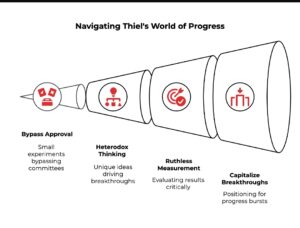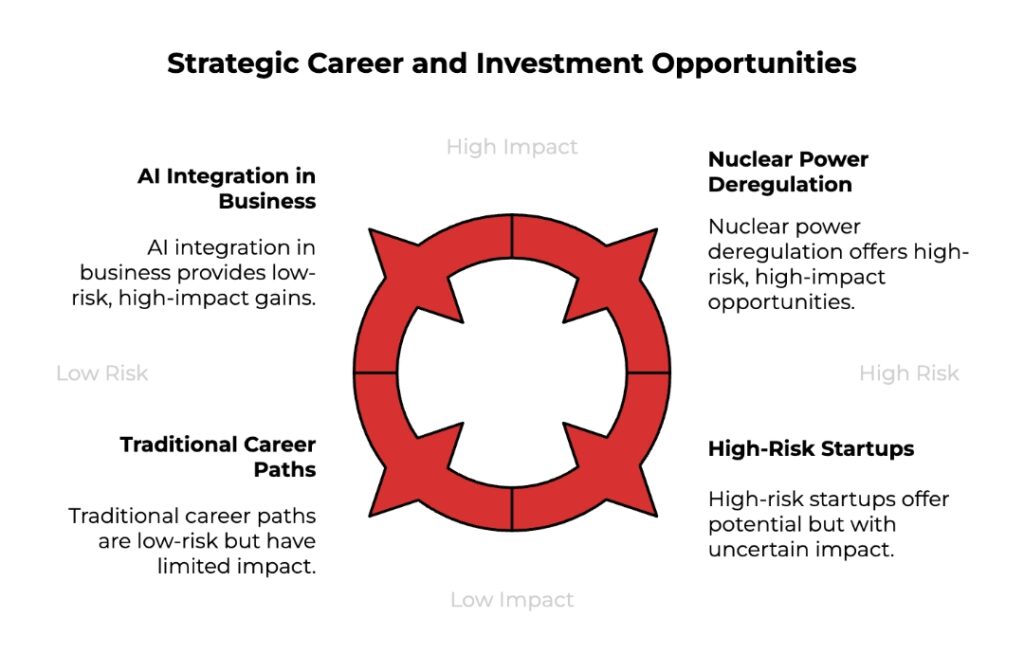The march to introduce AI to your business
With the relentless march of technology, there’s a new player in the realm of content marketing – Artificial Intelligence (AI). Using AI as a content analyst in your marketing strategy is a revolutionary way of streamlining and enhancing content creation. AI’s potential in this regard is enormous, given its capacity for data collection, analysis and interpretation.
Benefits of AI within your business
The pre-eminent benefit of AI is its ability to analyse large quantities of data quickly and accurately. It can effectively crawl through an endless stream of information on the internet and process it. With the help of AI analytics, you can understand what kind of content is gaining traction among your target audience. You can see which topics get the most shares, the best times of the day to post, and which platforms are most effective in reaching your intended audience.

Can AI create engaging content?
Moreover, AI can assist in creating engaging content, be it a blog post, an article, or a social media update. Through natural language generation (NLG), AI can generate readable text based on the data input, and it can do so with striking accuracy. This technology can reduce the time and effort spent on content creation, allowing you to focus more on strategy and less on the mechanics.
When it comes to social media posting, AI helps in predicting the best times and channels to post content for maximum reach. It can analyse user behaviour, identify when your target audience is most active, and suggest the best time frames that will guarantee optimal engagement.
Does AI anticipate trends?
Moreover, AI’s predictive analytics can anticipate trends and consumer behaviour. It effectively provides a ‘mood meter’ for your audience, helping you tailor your content accordingly. Knowing what your audience likes, dislikes, or even what they might like in the future can go a long way in creating more personalised and effective marketing campaigns.
However, venturing into AI as a content analyst requires planning and careful consideration. It’s essential to clearly define your goals for employing AI in your marketing strategy. Start small, track your progress, and make adjustments as necessary. It’s also critical to keep human oversight and judgement involved in the process. AI can provide guidance, but at the end of the day, the intuitive understanding and creativity of a human mind drive truly engaging content.
Moving forward with AI in your business
As intimidating as it might initially sound, embracing AI in marketing, particularly for content analysis, could provide your marketing strategy a real edge. From analysing the competition and predicting consumer behaviour to providing insights for content creation, AI can significantly streamline and enhance your marketing efforts.
How to plan using AI
Planning to utilise AI as a content analyst needs a well-thought-out strategy. However, once implemented, it can open up countless possibilities and elevate your marketing system to a whole new dimension. The future of marketing indeed seems to be headed in AI’s direction, and adapting to it could well be the key to a thriving marketing plan. I have researched this area and found Peter Thiel to have very clear interpretations on the subject.
Who is Peter Thiel?
Peter Thiel is a highly influential Silicon Valley entrepreneur, venture capitalist, and author, best known as a co-founder of PayPal and Palantir, and as the first outside investor in Facebook. His unique perspective stems from a deep understanding of technology, economics, and philosophy, often challenging conventional wisdom.
Peter Thiel principles
His principles, particularly those advocating for calculated risk-taking, focusing on truly novel innovation rather than incremental improvements (“0 to 1” rather than “1 to N”), and seeking disproportionate returns in underserved or newly opened markets, are profoundly relevant to the development of AI within your business.
AI hype and how it affects you
In a landscape saturated with AI hype, Thiel’s framework helps cut through the noise, guiding you to leverage AI not merely as a trending technology, but as a strategic tool to solve fundamental problems, disrupt stagnant industries, and achieve significant, measurable outcomes that truly differentiate your business in the market. He pushes you to ask: how can AI help your business achieve something truly new and valuable, rather than just doing the same things a little bit faster?
Peter Thiel’s AI concept

Peter Thiel’s interpretation of AI
Let’s break down 2 of these with a more defined investigation. Let’s look how it can be used in Australia with a growth area like Moreton Bay, within the city of Brisbane. We have used this area as it is fast growing and development necessary to maintain the growth and the pro active Moreton Bay council are approaching the AI revolution with a program called Digital Leap.
- “AI Is Real, But Temper Your Expectations” (Position yourself to deliver measurable business results using AI as one tool among many, rather than just being an “AI expert”).
- “The Risk-Taking Advantage” (Take calculated risks because institutions have become pathologically risk-averse, leading to outsized returns for those willing to experiment).
Here’s how we applied Peter Thiel principles to Moreton Bay businesses:
1. AI Is Real, But Temper Your Expectations (For Moreton Bay)
Thiel’s insight here isn’t to dismiss AI, but to ground it in practical value. For Moreton Bay businesses, this means avoiding the trap of chasing “AI for AI’s sake” or investing in complex AI solutions without a clear problem to solve or a measurable return on investment.
The Thiel Principle: “Don’t bet everything on becoming an ‘AI expert.’ Instead, position yourself as someone who can deliver measurable business results using AI as one tool among many.”
Application to Moreton Bay Businesses:
Many local businesses might feel pressure to adopt AI or worry about being left behind. Thiel’s advice simplifies this:
- Focus on Business Problems, Not Just Technology: Instead of asking, “How can I use AI?” ask, “What are my biggest business inefficiencies or growth opportunities?” Then, see if AI tools (even simple ones) can help.
- Example for a Retail/Service Business (e.g., Cafe, Hair Salon, Trades Service):
- Problem: High no-show rates for appointments, inefficient customer communication, difficulty tracking customer preferences.
- Moreton Bay AI Application: Instead of developing a complex AI, invest in smart scheduling software that uses basic AI for predictive no-show reminders, automated personalized follow-up messages after a service (e.g., “Time for your next haircut!”), or simple chatbots for instant answers to FAQs on your website. The goal is better customer retention and operational efficiency, not just having “AI.”
- Winner-Take-All Nuance: Businesses that effectively use these AI-powered tools to improve customer experience and streamline operations will gain a competitive edge by freeing up staff time and building stronger customer relationships. They’re not “AI experts,” but they’re results experts using AI.
- Example for a Retail/Service Business (e.g., Cafe, Hair Salon, Trades Service):
- Boost Productivity, Don’t Expect Miracles: AI is excellent for automation and data analysis. Local businesses can leverage this to free up staff for higher-value tasks.
- Example for a Tourism Operator (e.g., Whale Watching, Tour Bus):
- Problem: Manual booking management, slow response to common customer inquiries, difficulty personalizing tour recommendations.
- Moreton Bay AI Application: Implement AI-driven dynamic pricing tools to optimize ticket sales based on demand, use AI-powered CRM systems to track customer interests and suggest relevant tours, or employ AI-driven social media listening tools to identify potential customers or feedback. The focus is on boosting bookings and improving the customer journey, directly impacting the bottom line.
- Winner-Take-All Nuance: Operators who can use these tools to offer a more seamless booking process, personalized experiences, and efficient operations will likely attract more visitors and gain market share from those stuck with manual, less responsive systems.
- Example for a Tourism Operator (e.g., Whale Watching, Tour Bus):
2. The Risk-Taking Advantage (For Moreton Bay)
Thiel argues that in a stagnant, risk-averse environment, even calculated modest risks can deliver disproportionately high returns. This is particularly relevant for smaller, more agile businesses in Moreton Bay compared to larger, more bureaucratic corporations.
The Thiel Principle: “Take a lot more risk because our institutions have become pathologically risk-averse. While your competitors are paralyzed by compliance frameworks and committee approvals, massive opportunities exist for individuals willing to experiment. This isn’t about reckless gambling. It’s about recognizing that in a stagnant environment, even modest calculated risks can deliver outsized returns because so few people are taking them.”
Application to Moreton Bay Businesses:
- Experiment with New Business Models or Niche Markets: When others stick to the tried and true, a calculated risk into an underserved market or a novel way of delivering a service can be hugely rewarding.
- Example for a Local Producer/Artisan (e.g., Craft Brewery, Artisan Bakery, Local Maker):
- The “Safe” Path: Sell through existing retail channels, operate a traditional storefront.
- Moreton Bay Risk-Taking Advantage: Instead of waiting for permission or large-scale market validation, launch a highly niche product or service only available online with limited production runs (e.g., “Moreton Bay-specific” craft beer flavours, custom-designed furniture made from local recycled materials, exclusive online cooking classes featuring local produce).
- Winner-Take-All Nuance: By being first to market with a unique, high-quality, and locally-focused offering, even a small producer can capture significant brand loyalty and command premium prices. While others are paralyzed by the perceived “risk” of a small market, these “first movers” own it.
- Example for a Local Producer/Artisan (e.g., Craft Brewery, Artisan Bakery, Local Maker):
- Rethink Distribution and Customer Engagement: Challenge traditional ways customers interact with your business.
- Example for a Professional Service (e.g., Accountant, Lawyer, Consultant):
- The “Safe” Path: Traditional office hours, in-person meetings, relying on referrals.
- Moreton Bay Risk-Taking Advantage: Offer radically flexible service models (e.g., 24/7 online access to documents, virtual consultations only, subscription-based legal advice for small businesses, pro-bono “office hours” for community engagement) or experiment with innovative marketing that breaks industry norms (e.g., short, engaging educational videos on local business issues on TikTok, co-working space meetups).
- Winner-Take-All Nuance: While larger, more traditional firms might be slow to adapt due to internal compliance or established practices, agile local professionals who offer greater convenience, accessibility, and modern communication methods can quickly attract a new generation of clients who value these approaches. They are not just better, they are different in a way that aligns with modern client needs.
- Example for a Professional Service (e.g., Accountant, Lawyer, Consultant):
By embracing these principles, Moreton Bay businesses can navigate the broader economic stagnation Thiel describes, turning perceived limitations into distinct competitive advantages. The key is to be proactive, focused on results, and willing to take smart, calculated risks where others fear to tread.
Where would you use these principals of Peter Thiel in your business plans? What are you doing to keep up with the AI revolution? Talk to us and let’s audit your business to see where you are and what may be a necessary move to keep you relevant in this new world coming!
